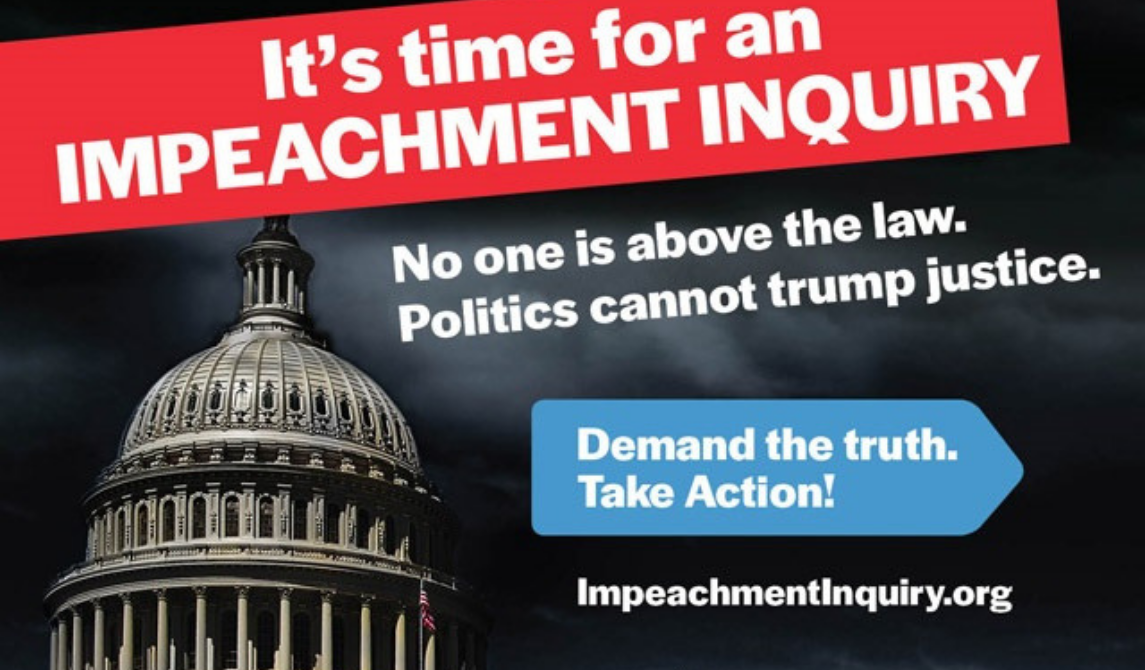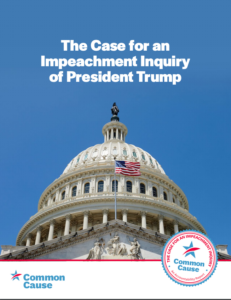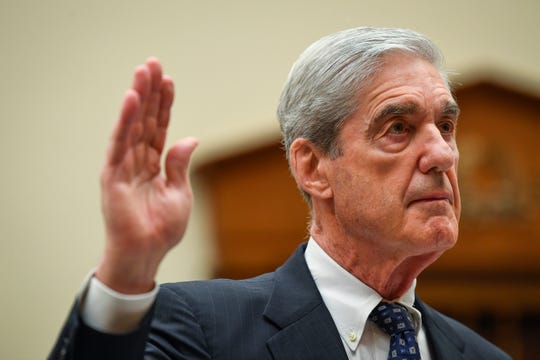After Mueller Testimony Congress Must Begin Impeachment Inquiry

Note: This op-ed originally published in USA Today, with our thanks.
The American people deserve accountability, transparency, and ethics in government. They are not getting it from the Trump administration.
As we heard again Wednesday in former special counsel Robert Mueller’s congressional testimony, President Donald  Trump and members of his administration went to great efforts to hide the truth from government investigators as well. Mueller also made it very clear that the threat to our elections from Russia and other hostile foreign powers is ongoing and not nearly enough is being done to safeguard the integrity of future elections.
Trump and members of his administration went to great efforts to hide the truth from government investigators as well. Mueller also made it very clear that the threat to our elections from Russia and other hostile foreign powers is ongoing and not nearly enough is being done to safeguard the integrity of future elections.
And once again, we heard from Mueller that his report did not exonerate Trump of criminal wrongdoing. “The president was not exculpated for the acts that he allegedly committed,” he said. Or, as he put it in May: “If we had had confidence that the president clearly did not commit a crime, we would have said that.”
No option left but impeachment inquiry
Under Department of Justice policy, Mueller was prohibited from bringing criminal charges against a sitting president even if he had uncovered criminal wrongdoing. He made clear that only Congress can hold the president accountable while he is in office. The outrageous and seemingly criminal conduct outlined in the report requires further investigation by Congress.
The White House, however, has stonewalled Congress at every turn — refusing to turn over relevant documents or allow current and former officials to testify. That ongoing obstruction, and refusal to recognize Congress as a co-equal branch of government, leaves no option but to begin an impeachment investigation in order to force the White House to comply with its requests.
Former special counsel Robert Mueller is sworn in before testifying to the House Judiciary Committee in Washington on July 24, 2019. (Photo: Jack Gruber, USAT)
As president of Common Cause, a nonpartisan democracy advocacy organization that first rose to prominence in the Watergate era, I am not calling for an impeachment investigation lightly. I’ve spent months working with Common Cause’s staff and board, along with outside legal experts, to figure out the best ways to hold the president accountable and to unearth the truth for the American people.

Over this time period, critical Trump administration officials, including Attorney General William Barr, former White House Counsel Don McGahn, Treasury Secretary Steve Mnuchin and White House Counselor Kellyanne Conway have refused to testify, turn over documents as required by subpoena, and/or answer basic questions.
Constitution, oath of office at stake
As the Constitution’s ultimate oversight process to hold the executive branch accountable, an impeachment investigation would put teeth in the investigative powers of Congress and give lawmakers more tools to get to the truth that the American people deserve to know. Any impeachment investigation must conduct public hearings and focus on key areas where President Trump appears to have violated the Constitution and failed to carry out the duties of his office.
Secondly, Congress must use the powers of an impeachment investigation to determine whether President Trump is violating his oath of office with his hostility toward efforts to thwart further foreign interference in our elections. To date the president has neglected his constitutional duty, publicly denying the facts about Russia’s role in the 2016 election. At times, he has even appeared to invite future meddling.
See More: Executive EthicsEthics & Accountability